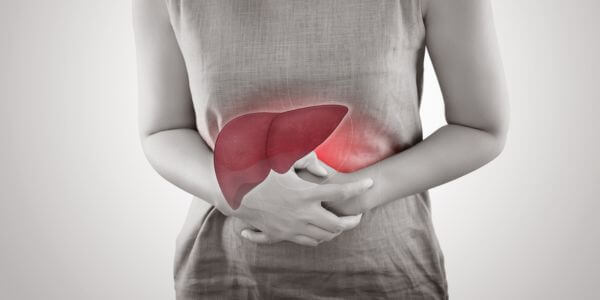Health Hub
Gastrointestinal cancers: Types, symptoms and treatments
Sorry, we couldn't find any posts. Please try a different search.

Gastrointestinal cancers affect millions of people each year. However, despite their prevalence and severity, there is hope through early detection, advanced treatment options, and preventive measures.
Understanding the types, symptoms, causes, diagnostic procedures, and treatment options for each of these cancers is crucial for patients, healthcare providers, and the general public. This

knowledge not only aids in early detection, which can significantly improve outcomes but also empowers people to make lifestyle changes that could reduce their risk of developing these cancers. Understanding the treatment landscape can provide a roadmap for discussion with healthcare professionals about the most appropriate care plan.
This easy-to-read article aims to shed light on these various aspects of gastrointestinal cancers by addressing the causes, symptoms and other aspects of treatment and management to help you get the best results for your own health.
If you’re worried about digestive system cancers, you can find out more about our gastroenterological expertise and services here.
Oesophageal Cancer
Oesophageal cancer occurs in the oesophagus, the long tube that carries food from the throat to the stomach and accounts for 2% of all newly diagnosed cancers – that’s 9,500 new cases per year.
Causes of oesophageal cancer
- Tobacco use, including smoking and chewing tobacco
- Heavy alcohol consumption
- Chronic acid reflux or gastroesophageal reflux disease (GERD)
- Barrett’s oesophagus, a condition where the oesophageal lining changes due to acid reflux
- Obesity
- Consumption of very hot liquids.
READ: How to treat acid reflux effectively
Oesophageal cancer symptoms
- Difficulty swallowing (dysphagia)
- Weight loss
- Chest pain or discomfort
- Indigestion or heartburn
- Coughing or hoarseness.
How is oesophageal cancer diagnosed?
Diagnosis typically involves endoscopy, where a tube with a camera is used to examine the oesophagus, and biopsy, where a sample of tissue is taken for analysis. Imaging tests like CT scans and barium swallow studies may also be used.
How is oesophageal cancer treated?
Treatment options include surgery, radiation therapy, chemotherapy, targeted therapy, or a combination of these, depending on the stage and location of the cancer.
How to reduce the chances of developing esophageal cancer
- Avoid smoking
- Limit alcohol consumption
- Maintain a healthy weight
- Eat a diet rich in fruits and vegetables.

Gastric (Stomach) Cancer
Gastric cancer begins in the stomach, the organ that holds and digests food. According to Cancer Research UK, stomach cancer accounts for 2% of all newly diagnosed cancers. That’s 6,500 new cases per year.
Causes of stomach cancer
- Infection with Helicobacter pylori bacteria
- Long-term inflammation of the stomach (chronic gastritis)
- Smoking
- A diet high in salty and smoked foods and low in fruits and vegetables
- Family history of gastric cancer
- Pernicious anaemia or polyps in the stomach.
Stomach cancer symptoms:
- Indigestion and stomach discomfort
- A bloated feeling after eating
- Mild nausea
- Loss of appetite
- Heartburn.
How is stomach cancer diagnosed?
Diagnosis may involve endoscopy and biopsy, along with imaging tests like CT scans to determine the extent of the cancer.
How is stomach cancer treated?
Treatment often includes surgery to remove the cancer, chemotherapy, radiation therapy, or targeted therapy.
How to reduce the chances of developing stomach cancer:
- Limit intake of smoked, salted, and pickled foods
- Eat a diet rich in fruits and vegetables
- Avoid smoking
- Seek treatment for Helicobacter pylori infection.

Colorectal/Bowel Cancer
Colorectal cancer affects the colon and rectum, parts of the large intestine and accounts for 11% of all newly diagnosed cancers (43,000 new cases per year).
Causes of colorectal cancer
- Age (most common in people over 50)
- A diet low in fibre and high in red or processed meats
- Obesity
- Lack of physical activity
- Smoking
- Heavy alcohol use
- Family history of colorectal cancer or polyps
- Inflammatory bowel diseases, such as Crohn’s disease or ulcerative colitis
- Genetic syndromes, such as familial adenomatous polyposis (FAP) or Lynch syndrome.
READ: IBS – what it is and what you can do about it
Symptoms of bowel/colorectal cancer
- Changes in bowel habits
- Blood in the stool
- Persistent abdominal discomfort
- Unexplained weight loss
- Fatigue.
How is bowel/colorectal cancer diagnosed?
Diagnosis involves colonoscopy, where the entire colon is examined with a camera, and biopsy. Imaging tests like CT scans may also be used.
READ: Saving lives: detecting bowel cancer early with FIT testing
How is bowel/colorectal cancer type treated?
Treatment options include surgery, chemotherapy, radiation therapy, and targeted therapy, depending on the stage and location of the cancer.
How to reduce the chances of developing colorectal cancer:
- Get regular screening tests from age 45
- Eat a diet high in fruits, vegetables, and whole grains
- Exercise regularly
- Avoid smoking and limit alcohol consumption.
READ: Your questions about bowel cancer, answered

Pancreatic Cancer
Pancreatic cancer begins in the tissues of the pancreas, an organ in the abdomen that releases enzymes that aid digestion and hormones that help manage blood sugar. Pancreatic cancer accounts for 3% of all newly diagnosed cancers – 10,500 new cases per year.
Causes of pancreatic cancer
- Smoking
- Chronic inflammation of the pancreas (pancreatitis)
- Diabetes
- Family history of pancreatic cancer
- Obesity
- Certain genetic mutations.
Symptoms of pancreatic cancer
- Yellowing of the skin and eyes (jaundice)
- Pain in the upper abdomen or back
- Weight loss
- Loss of appetite
- Nausea.
How is pancreatic cancer diagnosed?
Diagnosis may involve imaging tests like CT scans, MRI, and endoscopic ultrasound, along with biopsy.
How is pancreatic cancer type treated?
Treatment can include surgery, radiation therapy, chemotherapy, targeted therapy, or a combination of these.
READ: A Guide To Colorectal Surgery
How to reduce the chances of developing pancreatic cancer
- Avoid smoking
- Maintain a healthy weight
- Choose a diet rich in fruits, vegetables, and whole grains
- Limit alcohol consumption.
Liver Cancer
Liver cancer begins in the cells of the liver, a vital organ that filters and processes blood and accounts for 2% of all new cancers (6,200 new cases per year).
Causes of liver cancer
- Chronic infection with hepatitis B virus (HBV) or hepatitis C virus (HCV)
- Cirrhosis
- Chronic alcohol consumption
- Nonalcoholic fatty liver disease
- Exposure to aflatoxins
- Certain inherited liver diseases.
Symptoms of liver cancer
- Weight loss
- Loss of appetite
- Upper abdominal pain
- Nausea and vomiting
- General weakness and fatigue.
How is liver cancer diagnosed?
Diagnosis involves imaging tests such as ultrasound, CT scans, and MRI, along with biopsy and blood tests to measure liver function.
How is liver cancer type treated?
Treatment options include surgery, liver transplant (in selected cases), ablation therapy, embolization therapy, radiation therapy, and targeted therapy.
How to reduce the chances of developing liver cancer
- Get vaccinated against hepatitis B
- Avoid excessive alcohol consumption
- Avoid exposure to aflatoxins
- Maintain a healthy weight.

Neuroendocrine Tumours
Neuroendocrine tumours are a diverse group of cancers that arise from neuroendocrine cells, which produce hormones.
Causes of neuroendocrine tumours
- The exact cause of most neuroendocrine tumours is unknown, but factors that may increase risk include:
- Family history of neuroendocrine tumours
- Genetic conditions, such as Multiple Endocrine Neoplasia type 1 (MEN1)
- Chronic stomach conditions that increase stomach acid production
- Having type 2 diabetes.
Symptoms of neuroendocrine tumours
Symptoms vary widely depending on the location of the tumour and may include pain, weight loss, and hormone-related symptoms.
How are neuroendocrine tumours diagnosed?
Diagnosis involves a combination of blood and urine tests, imaging tests like CT scans and MRIs, and biopsy.
How are neuroendocrine tumours treated?
Treatment options include surgery, hormone therapy, chemotherapy, targeted therapy, and radionuclide therapy.
How to reduce the chances of developing neuroendocrine tumours
Since many neuroendocrine tumours develop sporadically, specific prevention strategies are not well-defined but maintaining a healthy lifestyle is generally recommended.
Gastrointestinal Stromal Tumours (GIST)
GISTs are a type of tumour that occurs in the digestive tract, most commonly in the stomach or small intestine.
Causes of gastrointestinal stromal tumours (GIST)
Most GISTs are caused by mutations in the KIT gene or PDGFRA gene that occur after birth, for unknown reasons. These mutations are not inherited but are acquired during the person’s lifetime.
Symptoms of gastrointestinal stromal tumours (GIST)
- Abdominal pain or discomfort
- A mass in the abdomen
- Nausea and vomiting
- Blood in stool or vomit
- Fatigue.
How are gastrointestinal stromal tumours (GIST) diagnosed?
Diagnosis involves endoscopy or imaging tests like CT scans, along with biopsy.
How are gastrointestinal stromal tumours (GIST) treated?
The primary treatment is surgery to remove the tumour. Targeted therapy is also an option for some patients.
How to reduce the chances of developing this type of cancer:
There are no specific prevention strategies for GIST, but a healthy diet and regular medical check-ups can help identify issues early.
Anal Cancer
Anal cancer starts in the anus, the end of the large intestine through which stool leaves the body.
Causes of anal cancer
- Infection with human papillomavirus (HPV), especially HPV-16
- Smoking
- Having a history of cervical, vaginal, or vulvar cancer
- Anal intercourse, which may increase the risk of HPV infection
- A weakened immune system.
Symptoms of anal cancer:
- Anal bleeding
- Anal itching
- A lump or mass at the anal opening
- Pain or a feeling of fullness in the anal area
- Abnormal discharge from the anus.
READ: A Guide to Rectal Bleeding
How is anal cancer diagnosed?
Diagnosis involves a physical examination, including a digital rectal exam, and may include biopsy, anal pap smear, and imaging tests.
How is anal cancer type treated?
Treatment typically involves a combination of radiation therapy and chemotherapy, known as chemoradiation. Surgery may be necessary in some cases.
READ: Rectal bleeding: causes and treatment options
How to reduce the chances of developing anal cancer
- Practise safe sex to reduce the risk of HPV infection
- Get vaccinated against HPV
- Avoid smoking
If you’re concerned about any of these conditions, you can get in touch and find out more about our gastroenterological expertise and services here.
Article Sections
Latest Hospital News
Should you wish to speak to our press team, please visit Press Enquiries




